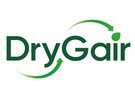Shorashim, founded in 1982, is one of the largest nurseries in Israel. They specialize in growing vegetable and spice seedlings using advanced manufacturing processes and technologies. The nursery includes 10 hectares of greenhouses and provides over 150 million seedlings a year to farmers all over the country.
As one of the largest nurseries in the country, Shorashim was one of the first commercial growing facilities to incorporate DryGair, 13 years ago. The goal was to prevent diseases, improve growth, and save energy.
Hanania Avakrat, co-founder of Shorashim, spoke with us about his experience with DryGair dehumidifiers.
“There’s no doubt that one cannot produce healthy seedlings without a system that takes care of humidity and dries the plants as much as possible.”
Dehumidification is necessary for successful greenhouse cultivation
“Once you build a structure and cover it, even with a net or piece of cloth, you separate the climate inside from that outside,” Says Avakrat. “The climate created inside has less air exchanges and higher humidity. So naturally, one of the treatments that needs to be taken care of is humidity reduction.”
Avakrat adds, “Humidity is a critical factor for disease development. As long as you cut humidity and temperature fluctuations, you can prevent or shorten the progression rate of these diseases.”
Every grower knows that wet plants are highly susceptible to some of the most common greenhouse molds, such as botrytis or powdery mildew. By avoiding wet plants, you can prevent these diseases with a very high success rate.
Hanania says, “When we first tested the DryGair dehumidifiers, we wet the plants in the evening. When we came in the morning, they were completely dry.”
Shorashim has been using DryGair for over a decade
In order to treat humidity and prevent diseases, Shorashim invested in some of the earliest DryGair dehumidifiers back in 2010.
The first unit was still in the development phase, and since then, DG dehumidifiers have undergone many improvements. However, Shorashim was satisfied and continued to incorporate more DryGair units in their facility.
“Once we started drying with the DryGair dehumidifiers, we got significantly better results than before. So we went ahead and purchased more units over the years.”
Hanania adds, “DryGair has improved our growing conditions and reduced the occurrence of detrimental diseases and molds. We’ve been using the system for 13 years, and the first dehumidifiers are still working well to this day.”
Energy savings and ease of operation are a welcome bonus
“We see significant energy savings as well, which is substantial in such a large operation.”
Over the past few years, it’s become clear that dehumidification isn’t just a means to prevent diseases and improve growth. It’s a tool that can save a lot of energy, and growers that have been using DryGair report as much as 70% savings on heating.
When asked about operating the DryGair system, Avakrat replied, “DryGair is a very reliable system that requires virtually zero maintenance. There’s no need to clean any filters or drain water. The units work almost without human intervention.”
The DryGair system was developed at the Volcani Center - Israel’s agricultural research center, in order to solve the problem of humidity in commercial horticulture. Today it’s used in hundreds of sites around the world, in all types of growing facilities, and in a wide range of crops.
DryGair will be presenting their dehumidifiers at the upcoming IPM expo in Essen 2023. The company also offers a free consultation with their experts for new and existing
For more information:
DryGair Energies
8 Hamanofim St, Herzliya
Tel.: +972-9-7730989
www.drygair.com
